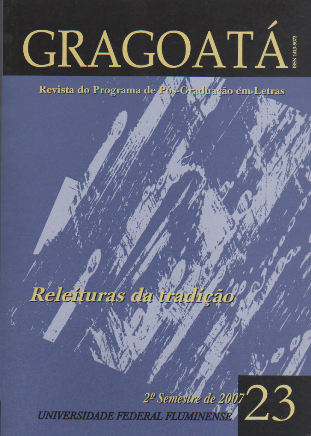A conquista do “entre-lugar”: a trajetória do romance histórico na América
Palavras-chave:
Romance histórico. Novo romance histórico. Metaficção historiográfica. Romance histórico contemporâneo de mediação. “Entre-lugar”Resumo
Este trabalho tem por objetivo destacar que o romance histórico teve na América uma trajetória que passou por todas as etapas que o gênero conheceu em solo europeu, desde suas origens com Walter Scott (1819) até as suas configurações contemporâneas. Aqui na América, contudo, tal gênero narrativo híbrido encontrou um universo cujas realidades históricas são singulares e que, ao serem ficcionalizadas pelos romancistas preocupados em dar voz ao povo colonizado, gerou obras que imprimiram aos modelos antecedentes novas configurações, especialmente pela releitura crítica que propõem do passado registrado apenas sob a visão dos europeus. A escrita do romance histórico em terras americanas efetiva, assim, com sua trajetória inovadora, a conquista de um espaço significativo dentro do mundo literário atual – um espaço que Silviano Santiago (1970) definiu como o “entre-lugar”.
Downloads
Downloads
Publicado
Edição
Seção
Licença
AUTORIZAÇÃO
Autores que publicam em Gragoatá concordam com os seguintes termos:
Os autores mantêm os direitos e cedem à revista o direito à primeira publicação, simultaneamente submetido a uma licença Creative Commons Atribuição 4.0 Internacional (CC BY 4.0), que permite o compartilhamento por terceiros com a devida menção ao autor e à primeira publicação pela Gragoatá.
Os autores podem entrar em acordos contratuais adicionais e separados para a distribuição não exclusiva da versão publicada da obra (por exemplo, postá-la em um repositório institucional ou publicá-la em um livro), com o reconhecimento de sua publicação inicial na Gragoatá.
A Gragoatá utiliza uma Licença Creative Commons - Atribuição CC BY 4.0 Internacional.











